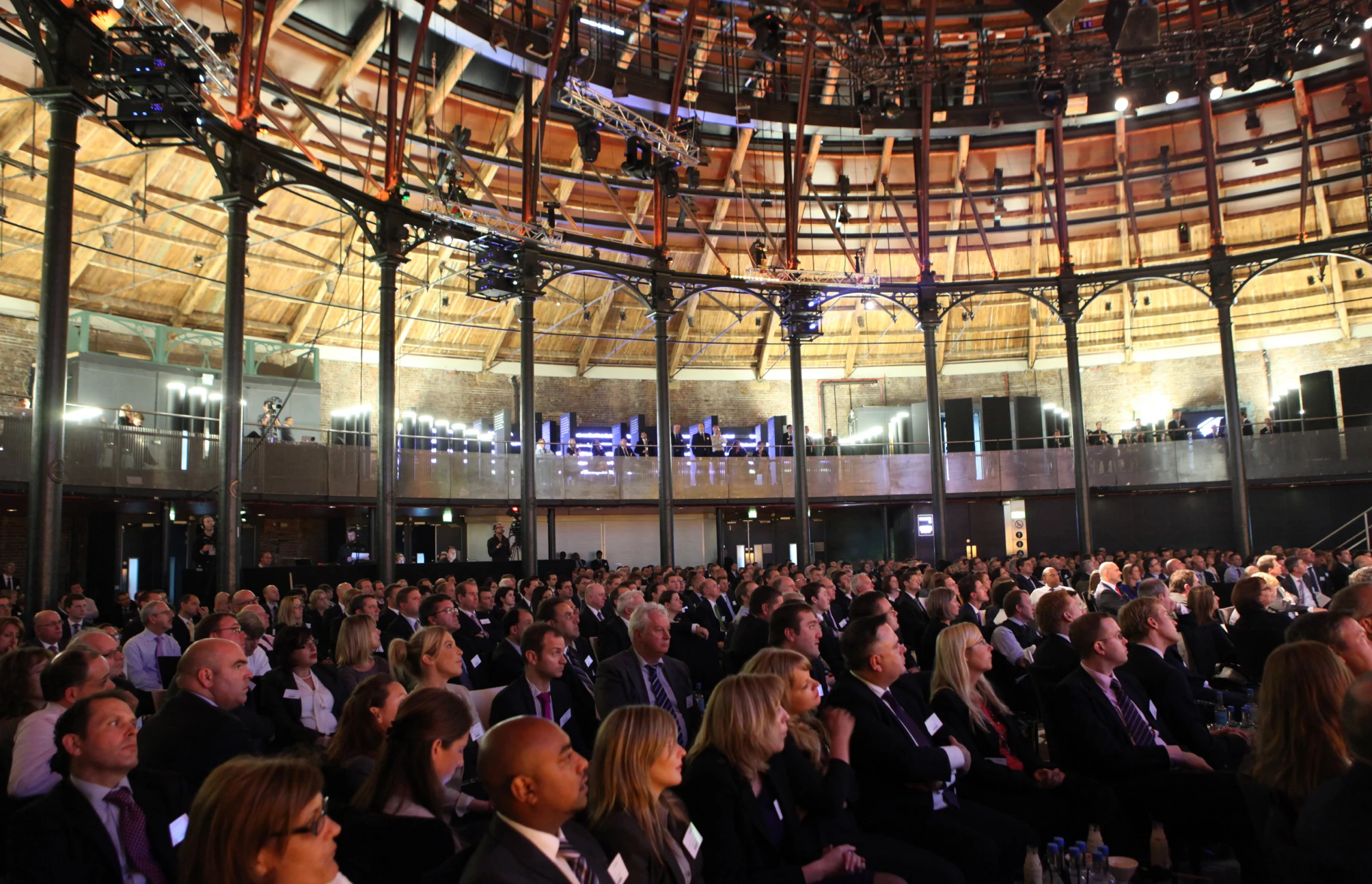Event Trends:
Reflecting on 2024
and Looking Ahead to 2025
2024 in Review: What Happened?
1. Hybrid Events
As predicted, hybrid formats firmly cemented their place in the industry. Combining in-person and virtual elements provided flexibility for attendees and broadened the reach of events. This approach proved particularly valuable for global audiences and those balancing busy schedules.
2. Sustainability at the Forefront
Sustainability became more than a buzzword—it was a priority. From reducing waste to sourcing locally and embracing eco-conscious design, event organisers made noticeable strides in making their gatherings more environmentally friendly.
3. Personalisation Matters
The demand for personalised experiences grew. Delegates valued tailored content and meaningful networking opportunities, which made events feel more relevant and engaging. Data-driven insights played a key role in helping organisers deliver on this expectation.

What’s Next for 2025?
Building on the successes and lessons of 2024, the trends shaping 2025 reflect both innovation and a deepening focus on the human experience.
1. Revitalised In-Person Events
While hybrid remains important, there’s a renewed focus on enhancing in-person experiences. Expect to see immersive activities, creative formats, and attention to detail that makes attendees feel part of something unique.
2. Technology on the Rise
The role of technology continues to expand. Artificial intelligence, augmented reality, and virtual reality are being used to boost engagement, simplify logistics, and create memorable moments for attendees.
3. Wellness and Wellbeing
Recognising the importance of balance, more events are incorporating wellness initiatives. From quiet spaces to wellbeing-focused sessions, there’s a shift towards ensuring that events are as restorative as they are productive.
4. Exploring New Locations
While major cities still attract their share of events, there’s a growing appetite for more unusual and off-the-beaten-track destinations. These locations offer fresh perspectives and a sense of exclusivity.
5. Data-Driven Planning
The use of data to anticipate delegate preferences, optimise schedules, and evaluate success is becoming indispensable. In 2025, insights will drive even smarter, more efficient planning.
